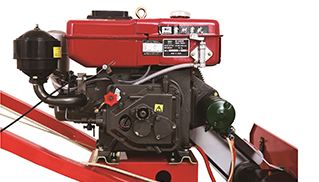Nov . 09, 2024 03:53 Back to list
Comparing Brake Drums and Rotors for Optimal Vehicle Performance and Safety
Brake Drum vs. Rotor Understanding the Differences and Making the Right Choice
When it comes to vehicle braking systems, two primary components play crucial roles brake drums and brake rotors. Both are essential for ensuring safety and performance, but they operate in fundamentally different ways. Understanding the distinctions between these two components can help drivers make informed decisions regarding vehicle maintenance and upgrades.
What Are Brake Drums?
Brake drums are part of a drum brake system, which has been utilized in vehicles for many decades. The design is relatively simple a cylindrical drum is attached to the wheel, while brake shoes are positioned inside the drum. When you press the brake pedal, hydraulic pressure forces the brake shoes outward against the inner surface of the drum, creating friction that slows down the wheel.
One of the primary advantages of brake drums is their ability to generate significant stopping power. They are particularly effective on heavier vehicles and in applications where a lot of force is needed to stop, such as trucks and trailers. Additionally, drum brakes provide good performance in wet conditions because the enclosed design protects the brake shoes from moisture.
However, brake drums also have some downsides. They tend to be heavier than rotors, which can affect overall vehicle weight and performance. They can also be prone to overheating during extended use, leading to brake fade, where the brakes lose effectiveness. Maintenance can be more challenging, as the enclosed design makes it harder to inspect for wear and tear.
What Are Brake Rotors?
On the other hand, brake rotors are part of a disc brake system, which has become the standard in most modern vehicles. In this system, a flat, circular rotor is attached to the wheel, and brake calipers house brake pads that press against the rotor when the brake pedal is engaged. The friction generated by the pads against the rotors slows the vehicle down.
brake drum vs rotor

Brake rotors offer several advantages over drums. First, they are generally lighter, which can improve handling and fuel efficiency. The open design of disc brakes allows for better heat dissipation, reducing the risk of brake fade. This feature makes them particularly suitable for high-performance vehicles and those frequently driven in stop-and-go conditions.
In terms of maintenance, rotors are easier to inspect and replace. Drivers can quickly check for warping or uneven wear, and they’re typically more straightforward to service than brake drums. Additionally, rotors often provide better pedal feel and more responsive braking.
However, brake rotors can be more expensive to replace, especially high-performance variants. They are also less effective in some situations, such as when used in extreme off-road conditions, where debris can damage the rotor surface.
Choosing Between Brake Drums and Rotors
Deciding whether to use brake drums or rotors depends on several factors, including vehicle type, driving style, and personal preferences. For heavier vehicles and certain towing applications, drum brakes may still be the best option due to their superior stopping power and load capacity.
Conversely, for modern cars, SUVs, and performance vehicles, disc brakes with rotors are often preferable due to their weight, cooling efficiency, and ease of maintenance. If you drive in urban areas with frequent stops, the responsiveness of rotors can significantly enhance safety and performance.
Conclusion
In summary, both brake drums and rotors have their unique advantages and disadvantages, making them suitable for different applications and driving conditions. Understanding these differences allows drivers to make informed choices about their vehicle's braking system, whether it be for routine maintenance or performance upgrades. Ultimately, ensuring that your vehicle’s braking system is in top condition is essential for maximizing safety and performance on the road. No matter which system you choose, regular maintenance and inspection are key to maintaining efficiency and ensuring your brakes perform at their best.
-
Liza Brake Drum: Superior Quality & Performance for Safe Driving
NewsAug.24,2025
-
Iveco Brake Drum | Premium OE Quality for Daily & Eurocargo
NewsAug.22,2025
-
Your Brake Drum Man: Quality & Performance Parts
NewsAug.21,2025
-
Explore Japan: Ultimate Travel Guide & Authentic Experiences
NewsAug.19,2025
-
Your Brake Drum Man: Premium & Reliable Brake Drums for Sale
NewsAug.18,2025
-
ROR Web Development: Build Fast, Scalable, Secure Apps
NewsAug.17,2025
